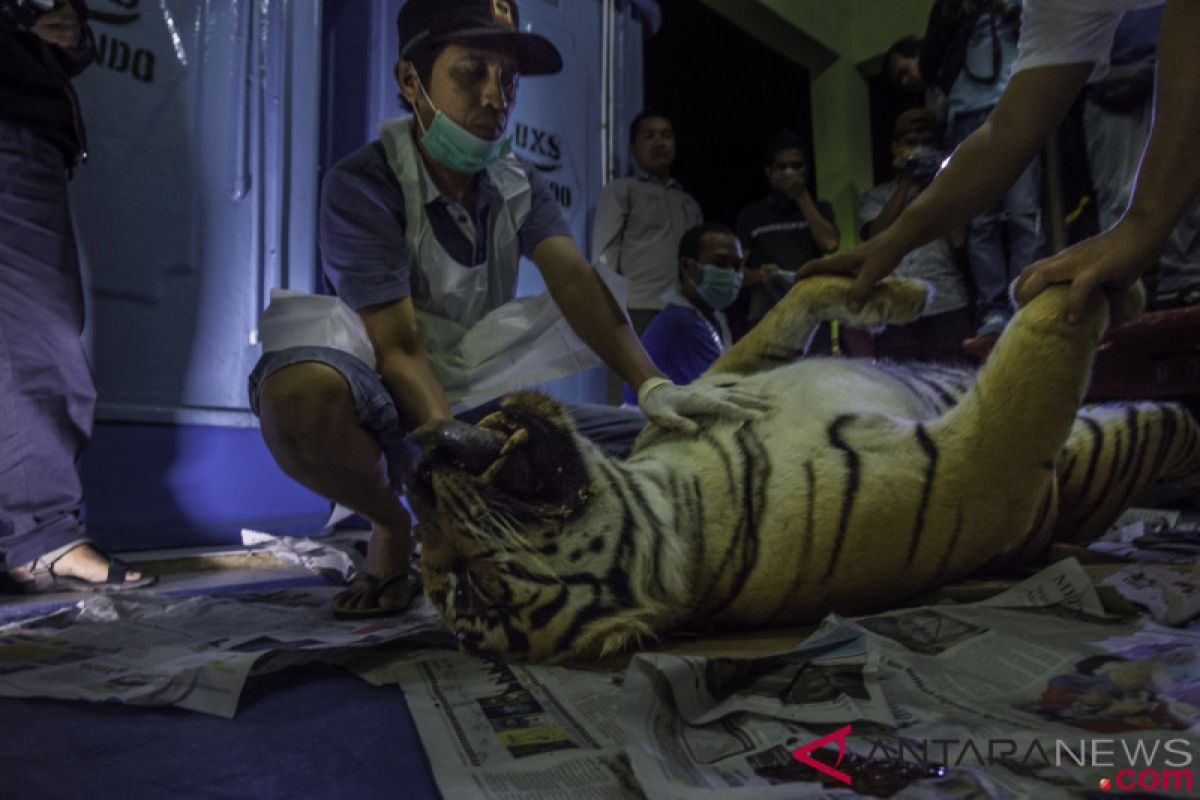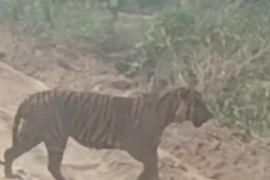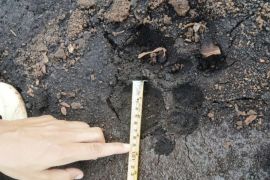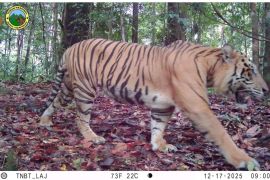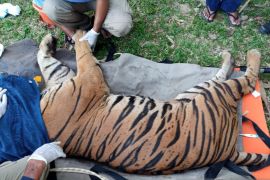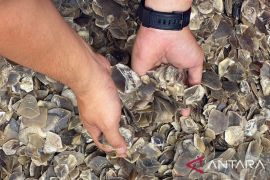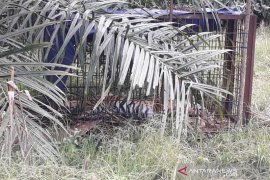"For us, this is a regress and leads to bad impacts on conservation efforts in countries having wildlife. China has been seen as an illegal importer and export destination of protected wildlife so far," Osmantri, coordinator of Wildlife Crime Team, told Antara here on Thursday.
WTC is a working unit of WWF program in central Sumatra.
An endemic animal of Sumatra, Sumatran tiger or panthera tigris sumatrea, is protected by laws because the animal is in the brink of extinction.
Its population is estimated at some 400 in the wild, and one third of them are in Riau Province, Sumatra Island.
When China agreed to ban trading of protected animal parts, demands in illegal market remain and the illegal trade involves an international trafficking syndicate, he noted.
Osmantri expressed his concern that the demand would be larger as China would legalize the trade of rhino horn and tiger bone.
The policy would stimulate poachers to provide supplies to meet the demands, he added.
The external factor would hamper the conservation efforts of the Indonesian government which has so far been progressive in stopping wildlife trafficking, he remarked.
On Oct 29, 2018, China announced it will allow scientific and medical uses of tiger bone and rhinoceros horn, reversing a 25-year ban on the practice and trade of the items.
"Under special circumstances, trading or using of tiger bone, rhino horn, or any products containing them should apply for permission," China`s cabinet, the State Council, revealed.
Conservationists sounded the alarm at China`s decision, despite its restrictions on sourcing and use of the products.
Osmantri urged the Indonesian government to remain in synergy with other countries that have ratified the Cites Convention to pressurize China to cancel its decision to legalize rhino horn and tiger bone usage.
He lauded the government`s measures to strengthen legal enforcement against wildlife poaching and trafficking, particularly in Riau, over the past two years.
"Riau is prone because wildlife could be easily smuggled overseas via rivers and sea," he revealed.
In 2016, two people were jailed for four years each for trading tiger`s skins. The cases were handled by the Riau Police in cooperation with the local natural resources conservation offices (BKSDA) of Riau and Jambi.
In 2017, two people were also arrested and jailed for four years each for trading tiger`s skin and bone in Riau, while in Jambi, two people were imprisoned for eight months for trading tiger`s skin.
In February 2018, two tiger skin traders were jailed for two years in Jambi.
Due to conflicts between tigers and people, three Sumatran tigers were killed in Jambi and two in Riau in 2015.
In 2016, four tigers were killed in Jambi and one in Riau; in 2017, three tigers were killed in Riau; and in 2018, four tigers were killed.
The latest case was the death of a pregnant tigress with two fetuses inside its womb. The tigress was dead after being trapped in a wild-boar trap in Kuantan Singingi District, Riau. The perpetrator has been detained in Pekanbaru, Riau.
Reporting by FB Anggoro.
Editing by H-YH
Reporter: Antara
Editor: Andi Abdussalam
Copyright © ANTARA 2018
